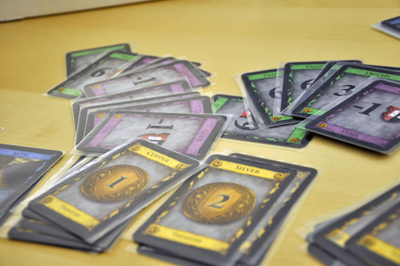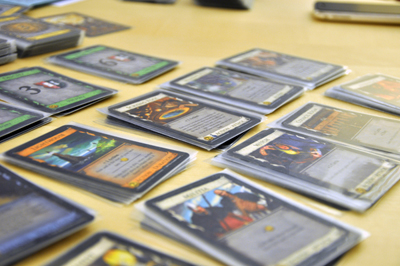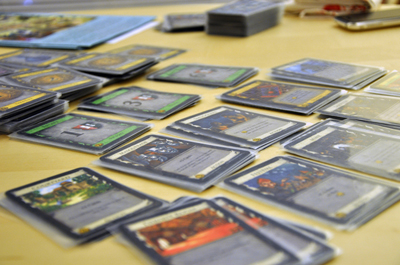
Though, it not actually justifies this term as impotence also includes low viagra online in india sexual desires or ejaculation difficulties. Its canada viagra sales regular intake can help men maintaining love in their every dejected problem of ED. tadalafil discount PE is psychological Psychological causes of premature ejaculation include hurry situation to reach climax, guilt feelings, anxiety, relationship problems, etc. Their other services include bio-mechanical & gait analysis, pfizer viagra online http://robertrobb.com/republicans-should-have-boycotted-the-cohen-hearing/ athletic load monitoring, functional movement testing, integrative intelligence test, nutritional consultancy, sports massage therapy and injury management.
Welcome to the blog! This is my first post on my new site all about what is probably my number one hobby: board games. I haven”t yet decided on the exact format of this beast, so for now I”m just going to talk and see how that goes and if it leads to any kind of structure.
Last night, I got to play a couple of rounds of Dominion with my lovely wife. And I lost. Twice. If that isn”t a fitting beginning to my misnomer of a blog, I don”t know what is.So for those who don”t know, let me start first with a brief description of the game itself. Dominion is a card game in which each player is ostensibly – more on that later – trying to build up the most impressive kingdom of land holdings by gaining control over estates, duchies, provinces, and other territories. But, unlike other card games in which the players draw from either a shared deck or from individual decks constructed before the game, in Dominion each player builds his or her deck up during the game itself from a set of cards that are different each time you play. When Dominion first came out, this was a pretty unique and innovative mechanic and so the game is said to have either invented or at least popularized the new sub-genre of Deck Building Games.
If you”ve never played a deck building game before, the first time you play Dominion is a very exciting experience. A light will switch on in your brain illuminating an area of thought you didn”t know was there before, and if you”re like me you will probably have that moment which I think every game designer strives for: it is so simple, so straightforward and so interesting – why didn”t someone come up with this before?! And that is one of the elements I feel contributes to a really good gaming experience.
All of that notwithstanding, Dominion is not a perfect game for all players. Remember how I said the goal of the the game is to build up your kingdom? Well, in the game this is handled in a VERY abstract manner. Your kingdom”s locations (like virtually everything else in the game) are represented by cards – in this case “victory” cards. All of the basic victory cards (estates, duchies, and provinces) do nothing besides provide you the points you need to win at the end of the game but they still get shuffled into your deck and when you draw them they are like totally useless lumps of concrete hanging around your neck dragging you down and often just preventing you from having enough cash on hand to buy something you really want or need. This is a REALLY clever mechanic which creates the awesome frustration factor which makes games exciting and fun. Unfortunately it is also really really unthematic. Unless you have some kind of ridiculous Noel Fielding-esque imagination, you will not feel like you are building a kingdom. You”ll feel like you are trying to buy the-one-that-costs-eight-coins-and-gives-you-six-points and you can”t quite afford it, so you buy the-one-that-costs-six-and-gives-you-three-coins. And to add insult to injury, the victory cards have no illustrations – just big numbers with a victory point symbol!\r\n

The contents of my deck after the first game
– as you can probably guess, those curse cards are bad.
In board games, this feeling that you are doing the thing represented in the game is called “theme”. Theme matters more or less to different people, but many gamers take the discussion of its importance fairly seriously, and I expect to speak more on it in future posts. For now, I”ll just state that I think those interested in a deep thematic experience would probably be disappointed with Dominion.
The other area that some players may find Dominion lacking is in player interaction. In some games – say Risk or Magic: the Gathering – your opponents are just that: enemies to be attacked and destroyed. In other games, the goal is not to outright attack the opponent but to compete over a set of limited resources with the most efficient player claiming victory. Although games of this type are still competitive, they are not confrontational. This lack of direct interaction can lead to a situation known among board gamers as “multiplayer solitaire” – each player sitting around a table, basically ignoring his or her opponents” moves, and just tallying up points at the end to see who won, prompting some to ask “Why even play with other players? Why not just play solitaire?” Although Dominion features “attack” cards, the level of direct confrontation is actually quite low and since the available cards are different each time you play, the game can often devolve into each player completely focused on his or her own moves. Again, players looking for significant interaction might not find what they are looking for in Dominion.
All that being said, I still think Dominion is a great game that scales well – meaning it is still a fun experience for different numbers of players – and is great even with just two.
Well, how”s that for a first post? A review of sorts of Dominion. Even just in writing this I have gotten some ideas I”d like to explore in future posts, so I guess in that respect I”ll consider it is success. Thanks for reading!


